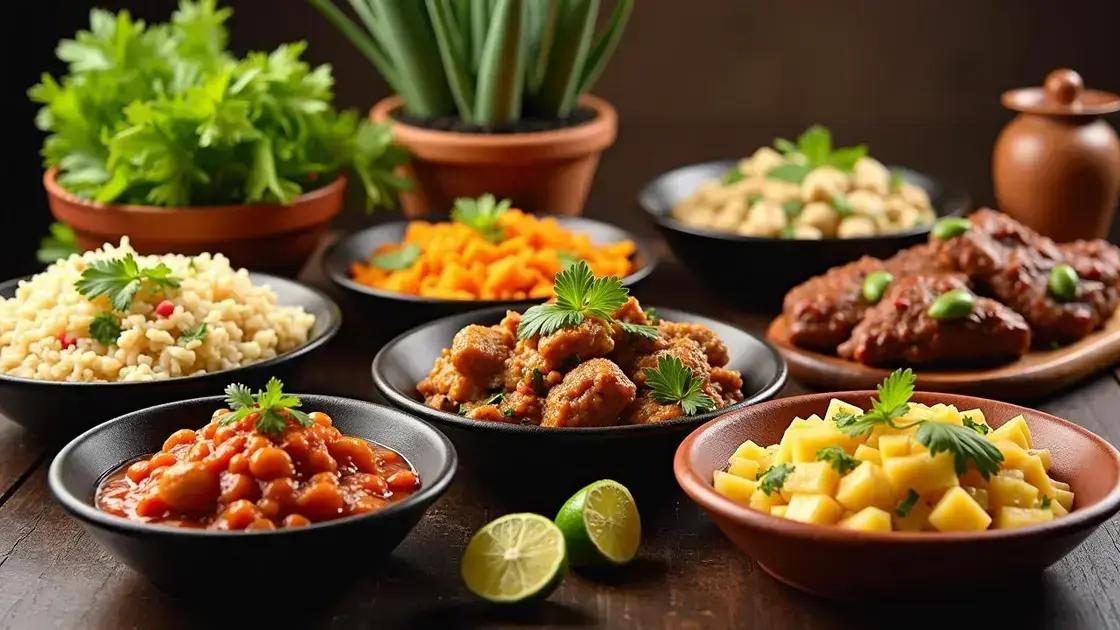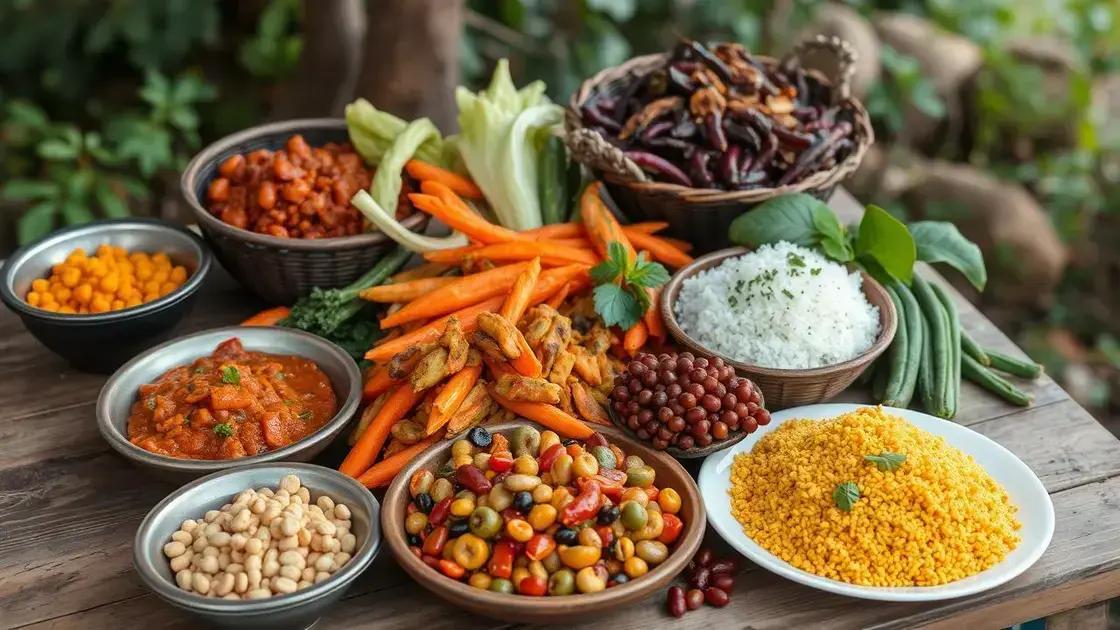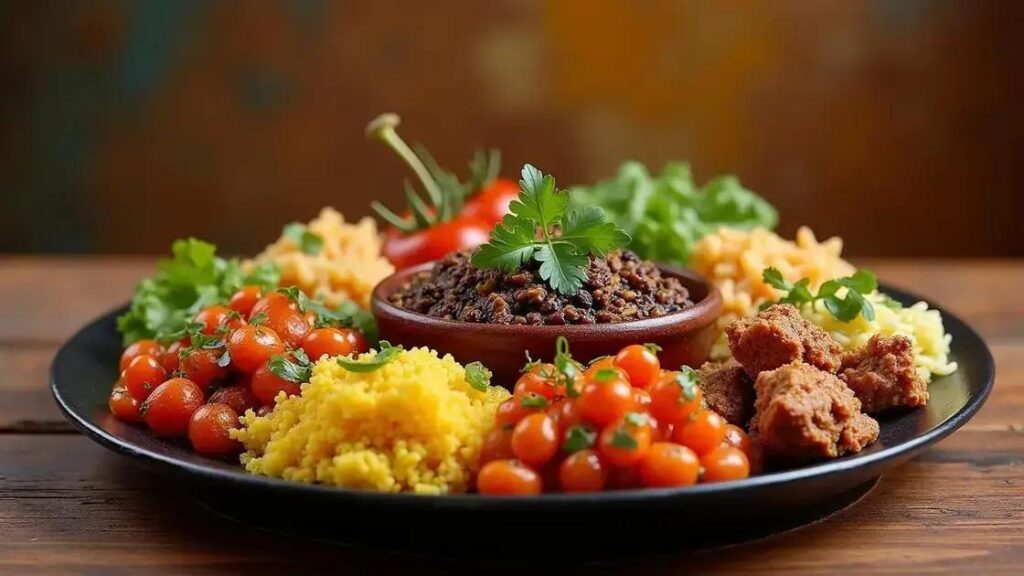African cuisine offers a variety of traditional recipes that are not only rich in flavor but also provide numerous health benefits, including nutrient-dense ingredients that boost overall well-being. By incorporating these recipes, you can enjoy delicious meals while supporting sustainable eating practices and fostering community connections.
African Recipe: recent studies have shown how traditional dishes from Africa are influencing modern cooking and dietary habits. These dishes offer a rich tapestry of flavors and health benefits that are gaining recognition worldwide. In this article, we will dive into the significance of these recipes, looking at their cultural importance and the latest research that highlights their contributions to contemporary cuisine.
Exploring Traditional African Recipes

Traditional African recipes are a vibrant reflection of the continent’s diverse cultures. Each region showcases unique dishes that have been passed down through generations. Exploring these recipes allows us to appreciate the rich history and significance behind each meal.
Regional Dishes and Their Stories
From jollof rice in West Africa to bunny chow in South Africa, each dish tells a story. For instance, Jollof rice is celebrated not just for its flavors but for its role in gatherings and festivities. Similarly, bunny chow originated from Indian migrant workers and has developed into a street food favorite, merging Indian and African culinary traditions.
Ingredients and Preparation Techniques
Many African recipes highlight the use of fresh ingredients such as yams, plantains, and various vegetables. Traditional preparation methods include steaming, boiling, and frying, which enhance the natural flavors of the ingredients. For example, the method of steaming vegetables helps retain their nutrients, making these dishes both delicious and healthy.
Cooking techniques often involve communal efforts, reinforcing connections among families and communities. This social aspect adds a deep sense of cultural identity, as meals are often prepared and enjoyed together.
Adaptations and Modern Influences
As global influences permeate cooking, traditional African recipes are being adapted without losing their essence. Many chefs combine authentic flavors with modern cooking techniques, creating dishes that appeal to a broader audience. This evolution of recipes maintains cultural relevance while introducing new tastes.
Health Benefits of African Cuisine

African cuisine is not only flavorful but also packed with health benefits. Many traditional dishes feature ingredients that are rich in nutrients, vitamins, and minerals. This makes African recipes an excellent addition to a healthy diet.
Nutrient-Dense Ingredients
Diverse ingredients such as legumes, whole grains, fruits, and vegetables are staples in African cooking. For example, dishes like beans and lentils provide a great source of protein and fiber, helping to maintain digestive health.
Antioxidant-Rich Foods
Many African dishes contain ingredients that are naturally high in antioxidants. Foods like baobab, moringa, and various berries help combat oxidative stress, which can lead to chronic diseases.
Heart Health and Healthy Fats
Cooking methods often emphasize healthy fats from sources like avocado and nuts. These foods are vital for heart health, as they may help lower cholesterol levels when consumed in moderation.
Promoting Sustainable Eating
African cuisine often utilizes seasonal and local produce, which fosters sustainable eating habits. Choosing locally-sourced ingredients supports regional economies and reduces environmental impact.
By embracing traditional African recipes, individuals can enjoy delicious meals that contribute positively to their health and well-being.
Embracing the Richness of African Cuisine
Exploring traditional African recipes offers a delightful journey into the continent’s culinary heritage. These dishes are not only flavorful but also come with significant health benefits, showcasing the power of natural, nutrient-dense ingredients.
By adopting these recipes, individuals can discover the enormous potential of African cuisine to enhance health and well-being while enjoying vibrant and diverse flavors.
As we celebrate the richness of these culinary traditions, let us incorporate the healthful elements of African recipes into our daily diets, thereby embracing a healthier lifestyle.
FAQ – Frequently Asked Questions about African Cuisine
What are the health benefits of traditional African recipes?
Traditional African recipes often use nutrient-dense ingredients that are rich in vitamins and minerals, promoting overall health and well-being.
How can I incorporate African recipes into my diet?
You can incorporate African recipes by exploring dishes from various regions, using local ingredients, and trying out traditional cooking methods.
What types of ingredients are commonly used in African cuisine?
Common ingredients in African cuisine include legumes, grains, vegetables, fruits, and healthy fats from sources like nuts and avocados.
Are there any sustainable practices in African cooking?
Yes, many African recipes emphasize seasonal and local produce, which supports sustainable eating habits and reduces environmental impact.
Can traditional African cuisine assist in managing weight?
Yes, many African dishes are made with whole foods and are naturally lower in calories, which can help in maintaining a healthy weight when incorporated into a balanced diet.
How does African cuisine promote community involvement?
Cooking and sharing meals are often communal activities in African cultures, bringing families and communities together and reinforcing social bonds.













